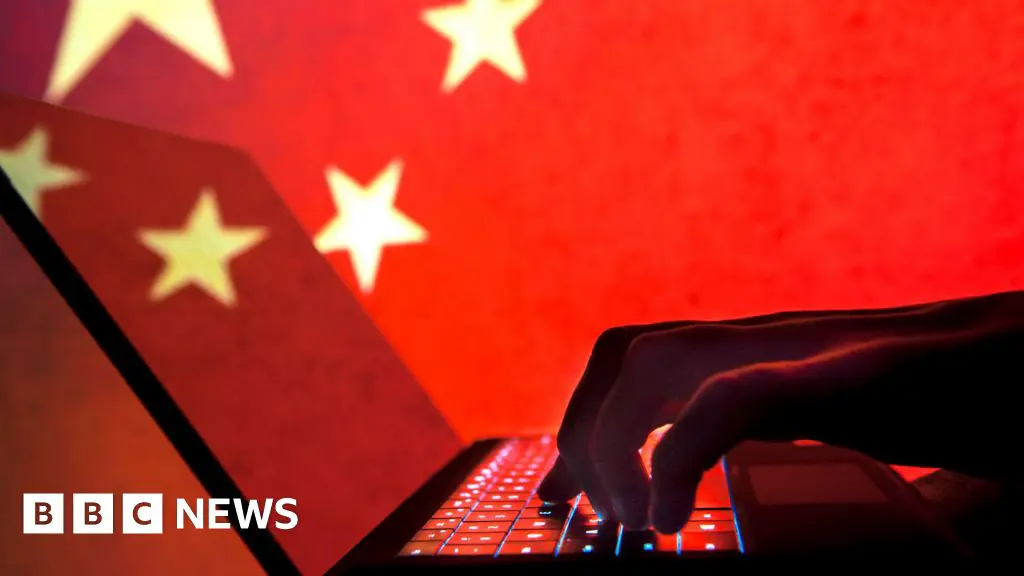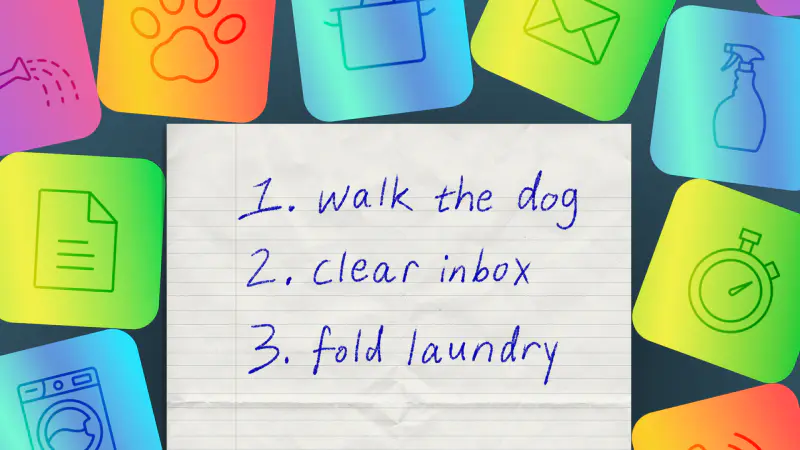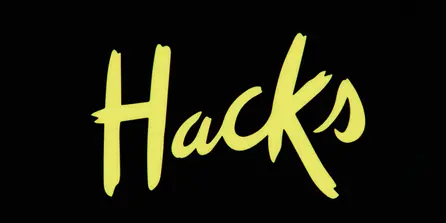'Shogun' and 'Hacks' win top TV honors at Golden Globes

BEVERLY HILLS, California, Jan 5 (Reuters) - "Shogun," FX's historical epic set in imperial Japan, claimed the prestigious best drama television series trophy at Sunday's Golden Globes Awards ceremony and "Hacks," known for its complex female stand-up comedian, claimed the best comedy win.
A tale of political machinations, "Shogun," also won best female and male acting awards for first-time winners Anna Sawai and Hiroyuki Sanada.
"Thank you for everyone that has been in my life. All of you have brought me here," Sanada said following his win.
"For the young actors and creators in the world, believe in yourself and never give up," he added.
The series won four awards in total, including the best supporting male actor for first-time Globe winner Tadanobu Asano who plays Kashigi Yabushige, the Lord of Izu.
"Shogun" follows the character Lord Yoshii Toranag, played by Sanada, as he discovers secrets that can help him destroy his enemies.
"Hacks" took home two awards, including best female actor in a comedy for Jean Smart who plays stand-up comedian Deborah Vance in the Max series.
"I never thought I'd be so happy to be called a hack," she said during her acceptance speech.
Other noteworthy winners included "Baby Reindeer" from Netflix for best limited series or anthology.
"People were crying out for something that kind of spoke to the kind of painful inconsistencies of being human," Richard Gadd, who plays stalker victim Donny Dunn, said while accepting the award.
Jessica Gunning won best female supporting actor for her role in "Baby Reindeer" as stalker Martha Scott.
Colin Farrell also took home the award for best male actor in a limited series or anthology for his role as villain Oswald Cobb in Max's "The Penguin."
In 2023, Eldridge Industries purchased the Golden Globe assets with Dick Clark Productions (DCP), and the Hollywood Foreign Press Association - which was criticized for a lack of diversity and ethical lapses in its stewardship of the awards - was shut down as a consequence.
Under the new ownership, the organization has expanded to 300 journalists from 75 countries around the world and 60% racial and ethnic diversity.
' Paul W. Downs Warns Kate Winslet Against Giving Jean Smart Shots After Golden Globes 2025 Win: 'Give Her Water'

It was a night to celebrate for the cast of Hacks.
The Max showtook home the prize for best musical or comedy series at the 2025 Golden Globes on Sunday, Jan. 5. The other nominees in category included Abbott Elementary, The Bear, The Gentlemen, Nobody Wants This and Only Murders in the Building.
"We are so lucky to get to tell this story," Hacks co-creator and star Paul W. Downs said while accepting the honor. "And you know, since language was created, we’ve all been telling stories and we're honored to be in this room with all of these storytellers."
Downs, 42, also revealed that, as the cast returns to filming season 4 of Hacks, they have an early morning call time on Monday.
"Thank you to our amazing cast, our incredible crew and, of course, our brilliant writers," he said. "We do have to shoot tomorrow and we have a call time of 6 a.m., so if Jean Smart asks you for a shot, please do not give it to her. Okay? Kate Winslet, I'm looking at you wherever you are. Give her water, give her water if she wants it."
Sitting in the audience, Winslet played along by reacting that she might give Smart a small shot. "Just a little shot, maybe one," Downs then said.
Hacks follows the complex dynamic between comedian Deborah (Jean Smart) and writer Ava (Hannah Einbinder) as they navigate a generational gap in attempts to revamp Deborah's career.
Smart, 73 — who won for best performance by a female actor in a television series – musical or comedy at the Golden Globes — opened up about her excitement for the role in an interview with The Hollywood Reporter.
“When I read the script, I said, ‘This is everything I could possibly want for my next job,’” she recalled in June 2024. “But I needed to be sure that real stand-ups could believe I was a comic. I had never been a comedian, so they were the real litmus test. And I passed, I think!”
Einbinder also earned a nomination for best performance by a female actor in a supporting role for her part on the hit series.
Never miss a story — sign up for PEOPLE's free daily newsletter to stay up-to-date on the best of what PEOPLE has to offer, from juicy celebrity news to compelling human interest stories.
See PEOPLE's full coverage of the 82nd annual Golden Globes as they're broadcasting live from the Beverly Hilton in Los Angeles on CBS and Paramount+.
What to know about string of US hacks blamed on China

US officials say hackers linked to the Chinese government are responsible for breaching security at major telecommunications companies and US agencies.
The latest hack, announced on Monday, targeted the US Department of the Treasury, which called the infiltration a "major incident".
Officials said the hackers were able to access employee workstations and some unclassified documents. China denies involvement.
It's the latest in a string of cyber-attacks that have emerged in recent months against US and other Western targets.
The treasury department hack followed news in late October that the two major US presidential campaigns were targeted.
The FBI and the Cybersecurity and Infrastructure Security Agency (Cisa) said the hack targeting the White House campaigns was carried out "by actors affiliated with the People's Republic of China".
In September, reports surfaced of an operation that managed to breach security at top telecommunications firms.
The White House recently said at least nine companies were hacked, including telecoms giants AT&T and Verizon.
And earlier in the year, in March, seven Chinese nationals were charged with running a hacking operation that lasted at least 14 years and targeted foreign critics of China, businesses and politicians.
Operations linked by Western governments to China have also targeted the UK's Electoral Commission, and the UK and New Zealand parliaments.
While full details have yet to be revealed, the hacks appear to be the work of several different units – each, US authorities say, linked to the Chinese state.
The hacking groups are given nicknames by security firms. For instance the group behind the telecoms hack is most commonly known by Salt Typhoon, the name given to it by researchers at Microsoft. Other firms have dubbed it Famous Sparrow, Ghost Emperor and Earth Estrie.
Salt Typhoon is thought to be behind the telecoms hack. A separate group, nicknamed Volt Typhoon, has been accused of breaking into critical infrastructure organisations for potential disruption attacks.
The seven Chinese citizens charged with hacking were linked by US justice department officials to an operation known as Zirconium or Judgment Panda.
The UK's National Cyber Security Centre says the same operation targeted UK parliamentarians' emails in 2021.
The most recent hacks seem to have been aimed at powerful individuals and collecting data that could benefit the Chinese government.
Among others, they targeted the phones of President-elect Donald Trump, Vice-President-elect JD Vance, and people working for Vice-President Kamala Harris's campaign.
The hackers have also accessed a database of phone numbers subject to law enforcement wiretaps – knowledge that experts say could be used to discover which foreign spies are under surveillance.
And millions of Americans may have had their data breached by the attacks on telecoms companies.
Richard Forno, assistant director of the University of Maryland, Baltimore County Cybersecurity Institute, said the Chinese efforts were being directed at a variety of targets.
"It's more generic information gathering, let's see what we can get into, and see what we can find," he said.
US lawmakers of both parties have expressed concern about the hacks.
Senator Mark Warner, a Democrat, called Salt Typhoon's activities the "worst telecom hack in our nation's history".
Brendan Carr, Trump's pick for chairman of the Federal Communications Commission, said an intelligence briefing about the hack was "deeply, deeply concerning".
"The information I heard, it made me want to basically smash my phone at the end of it," he told CNBC.
FBI Director Christopher Wray recently said that Salt Typhoon's hack of telecoms companies was China's "most significant cyber-espionage campaign in history".
He previously said China's hacking programme was bigger "than [that of] every other major nation combined".
In addition to charges laid against the seven Chinese nationals, earlier this month US authorities warned China Telecom Americas, the US subsidiary of one of China's largest communications companies, that it is a national security threat.
The company has 30 days to respond, and could ultimately face a ban.
In May, the UK sanctioned two individuals and Wuhan Xiaoruizhi Science and Technology Company Ltd, which it said was linked to Judgment Panda.
Trump's incoming national security adviser Mike Waltz has said that foreign hackers must face "higher costs and consequences".
Mr Forno, of the UMBC Cybersecurity Institute, said the hacks were probably years in the making.
"China traditionally takes a very long and strategic view of how they conduct their espionage and intelligence operations," he said. "The US tends to be much more reactive and much more interested in immediate and visible results."
China's foreign ministry spokeswoman Mao Ning told a news briefing that the accusations were "baseless" and "lacking evidence".
"China consistently opposes all forms of hacking and firmly rejects the dissemination of false information targeting China for political purposes," Mao said.
A Chinese embassy spokesman said in a statement: "The US needs to stop using cybersecurity to smear and slander China, and stop spreading all kinds of disinformation about the so-called Chinese hacking threats."
No apps, no hacks. A guide to optimizing productivity

Editor’s note: Upasna Gautam is a senior product manager on the Platforms team at CNN, where she develops and builds the content management technology that delivers news to the world.
I used to be a productivity app junkie.
If an app promised to make me smarter, faster or more efficient, I downloaded it. Time trackers, digital planners, habit trackers — you name it. I spent hours setting them up, convinced this one would fix my time management problems.
Spoiler alert: None of them did.
After five years of working remotely in a demanding industry, launching major products and having a baby, I’ve learned the hard truth: No app can fix your focus. Productivity isn’t about software or someone else’s “perfect” routine. It’s about mindset — nailing the basics and figuring out what works for you. That’s where mindful productivity comes in.
Mindful productivity isn’t about hustling from dawn till dusk or checking off 100 tasks just to collapse at the end of the day. It’s about knowing what you want to accomplish and working with intention toward those accomplishments — all while paying attention to what you’re doing and how you’re doing it. It’s staying focused on your goals and not being overwhelmed.
For me, it shows up in the agenda I set the night before my next morning. It’s in the pause before I send a snarky email I’ll regret later. It’s the deep breath when I see my calendar looks like chaos and I realize, “This can wait.”
Mindful productivity is about focusing on what matters so you can crush your work goals and have a life outside of them. In my case, it includes chasing a goofy, rambunctious 16-month-old around my home.
The way I do it works for me with the life I have. At every stage, whether it was getting married, jumping into a new industry, working remotely and having a baby, I had to reevaluate my priorities and update my strategies. Tweak or overhaul these ideas so they work for you.
If you’re game to try these hacks and forget apps in the new year, here’s how I do it:
If you don’t protect your time, no one else will. That’s why I block focused work sessions and treat them as sacred. Mondays and Fridays are my deep workdays — three-hour blocks dedicated to high-priority projects with zero interruptions.
Midweek, I squeeze in smaller blocks — an hour here, two hours there — to keep momentum on critical tasks. And remember it’s OK if your blocks look different. Not everyone can protect three hours of time.
Fridays are my go-to day for recapping the week. I summarize progress, key wins and upcoming milestones tailored for teammates, customers and other stakeholders. This habit not only keeps my team aligned but also builds trust across the board.
The key is to communicate and protect your time. I set an away message during these blocks, so my team knows exactly what I’m doing and why it matters. This results in no interruptions and no chaos — just focused, meaningful work. Here’s the bottom line: The way you treat your time is how others will treat it, too.
When I have tried to work on more than one thing at a time, I accomplish less and get frustrated more often. That’s because multitasking isn’t possible, according to science.
“Your brain is wired to do one thing at a time,” Dr. Aditi Nerurkar, an internal medicine physician and lecturer on global health and social medicine at Harvard Medical School, told me. “When you multitask, what you are doing is ‘task switching,’ doing two separate tasks in rapid succession.”
Task switching ironically weakens your productivity over time by affecting your prefrontal cortex, the area of your brain responsible for complex problem-solving, strategic thinking and organization.
So Nerurkar, author of “The 5 Resets: Rewire Your Brain and Body for Less Stress and More Resilience,” advised me to “monotask instead to maintain your productivity while preserving your prefrontal cortex.”
You know what you’ve done (or not done) by day’s end. I anchor the end of my day with a simple yet powerful ritual: I write down the three priorities I need to tackle for the next morning. Just three. This is my secret to ending the day on a high note. No lingering “What am I forgetting?” stress. No waking up to chaos. I leave a sticky note on my monitor, so when I sit down the next morning, I will know exactly where to start.
On a recent Thursday morning, my sticky note read: Finalize a product requirements document, prep for a meeting with engineering on a new feature we’re building and complete the first draft of first quarter objectives and key results. By 11 a.m., I felt like I was already winning the day.
Each morning, I first ensure that those top three priorities I defined the day before are scheduled into my calendar. It is my way of forcing myself to prioritize and make sure that what needs to get done gets done efficiently. It’s a daily practice of acknowledging that while I can do anything, I can’t do everything (at least not all at once).
The real hack here is using your calendar as your to-do list. If it doesn’t fit into your calendar, it’s not getting done. An hour in the morning for research. Ninety minutes after lunch to write. Thirty minutes before signing off to clear my inbox. This process isn’t just about scheduling — it’s a forcing function for prioritization.
When your day is limited to 24 hours, not everything makes the cut, and that’s the point. Why does this work? Because when a task is on your calendar, it’s real. You’ve committed to it. And when you commit, you execute. Don’t hide behind your to-do list. Own your time by turning it into a plan that delivers.
Every Friday before I log off for the weekend, I plan the next week. It’s a quiet moment of reflection and foresight, identifying my top three priorities and setting the stage for a week in which I can hit the ground running. I block time next week for big projects while anticipating potential challenges and making space for deep work.
It’s a simple routine that allows me to head into the weekend with a clear mind and begin at full speedon Monday. Oh, and the best part: no more Sunday night worries about what I’ve forgotten for the week ahead.
Mindful productivity isn’t about squeezing every second out of your day. It’s about being fully present and intentional with the time you have. It’s about creating a harmony that doesn’t just make you more productive but also more at peace.
And it’s not just a way to work — it applies to my personal life, too. Whether it’s an afternoon outing with my husband or a coffee date with a friend, these practices help me stay grounded in the present moment and align my time with what I value the most.
The goal isn’t to get more done. The goal is to get things done so that you can satisfy your work appetite, pay attention to your surroundings and be as emotionally present to yourself and your loved ones in off-work times as you are during work hours.
Get inspired by a weekly roundup on living well, made simple. Sign up for CNN’s Life, But Better newsletter for information and tools designed to improve your well-being.

